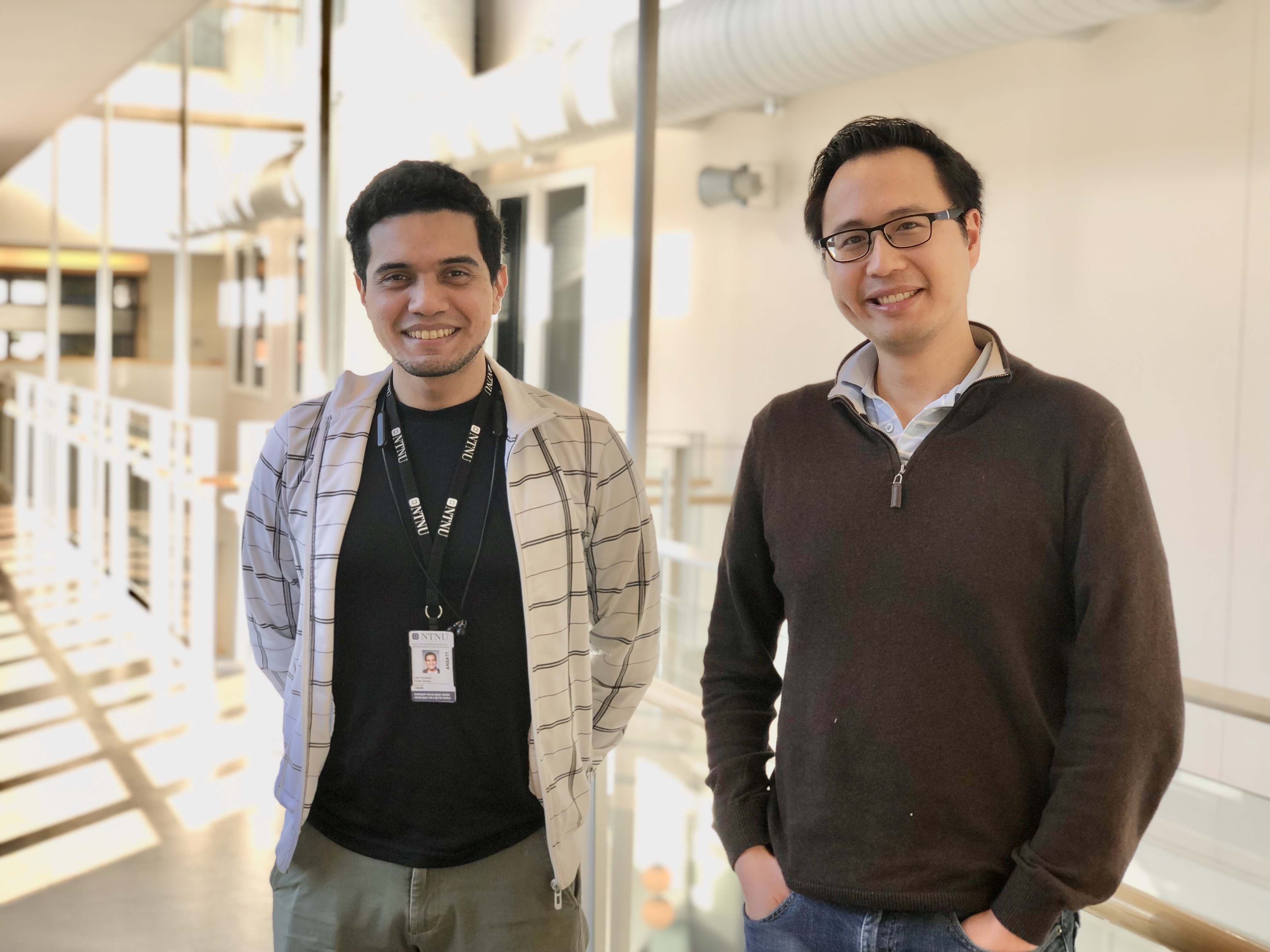MSCA postdoctoral fellowships - Kavli Institute for Systems Neuroscience
MSCA postdoctoral fellowships to Kavli researchers
Congratulations!
Luis Cobar from the Nigro Group and Anh-Tuan Trinh from the Yaksi Group at Kavli just got Marie Skłodowska-Curie Actions (MSCA) postdoctoral fellowships. Learn more about the Kavli researchers and their projects, EmotionObjectCoding by Luis and ZebraHipNetwork by Anh-Tuan.

EmotionObjectCoding by Luis
In our everyday life, we ascribe certain emotional value to some objects, leading to an emotional response when we interact or remember them, i.e., happy memories upon seeing a picture of a loved one. Upon interaction with an object, the brain integrates multiple sensory inputs (vision, smell, touch, sound, etc.) generating a unique mental representation, in an operation known as object encoding. There is plenty of evidence linking the activity of the main hubs of emotional processing (Amygdalar nuclei) and object encoding in the brain (perirhinal cortex), but a precise description of how emotional value is incorporated during object encoding, has not been investigated.

Kavli Institute for Systems Neuroscience
EmotionObjectCoding will make use of Neuropixel, enabling the recording of population-level activity between amygdala and perirhinal cortex. This approach will be complemented with in-vitro electrophysiological and optogenetic tools. Together, these methods will provide the groundwork for developing new hypothesis for the role of affective input during object encoding, and will also contribute to provide a clearer picture about how our emotional well-being affects other important cognitive processes such as learning and potentially, disorders such as PTSD and Alzheimer’s disease.
Luis F. Cóbar Zelaya, Postdoctoral Fellow, Nigro Group
ZebraHipNetwork by Anh-Tuan
How animals respond to their environment largely depends on their past experiences. However, how memories are established in the brain is still poorly understood in mammals and even less in primitive vertebrates. Recent studies have shown that the establishment of memory traces necessitate the interactions between multiple brain regions including the cortex, amygdala and hippocampus. Yet, imaging across these vast brain areas is very challenging in mammals due the complexity and size of the mammalian brain.

/ Kavli Institute for Systems Neuroscience
Since there are accumulating evidence illustrating that the hippocampus and amygdala are evolutionary conserved across vertebrates, here, I will use an optically transparent and genetically amenable vertebrate model that allows for brain-wide imaging of neural activity: the juvenile zebrafish. In this ZebraHipNetwork project, I will use a combination of ex-vivo electrophysiological recordings and whole-brain two-photon calcium imaging to investigate the connectivity architecture of the neural ensembles of the zebrafish hippocampal homologue. Additionally, I will investigate what kind of information does this hippocampal homologue encode during behavior and how does the brain-wide neural activity changes over the course of learning in behaving animals. Collectively, this project will identify key fundamental neural mechanisms that underlie memory formation across vertebrates and will provide a basis for future projects seeking to study complex neural computations in primitive species.
Anh-Tuan Trinh, Postdoctoral Fellow, Yaksi Group
MSCA
Marie Skłodowska-Curie Actions (MSCA) are the EU's flagship funding programme for doctoral education and postdoctoral training.
